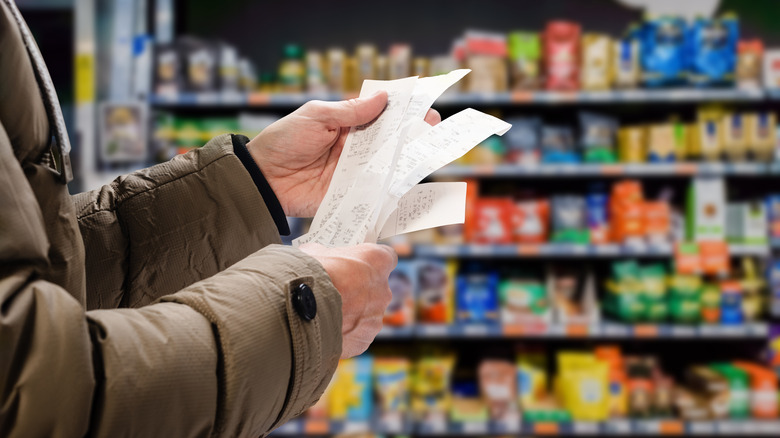New Report Shows More People Are Spending Less At The Grocery Store
As the U.S. continues to move forward from the COVID-19 pandemic and its restrictions, the public has been eager to embrace their renewed ability to be out and about. But unfortunately, inflation has curtailed the economic recovery many people may have expected with this development. According to a study conducted by PlaceIQ, while more Americans are going out in 2022 than during this time in 2021, spending in the retail, grocery, restaurant, beauty, and home improvement sectors has actually fallen. The data suggests that while people are enjoying the ability to be out and make purchases in person, they are being cautious about how much they spend.
This is likely because of the large increase in costs in major spending categories including food, gas, and rent. As Bloomberg notes, while many inflation calculations do not include food and energy because they are subject to change so quickly, those two categories are a driving force behind the financial decisions of many Americans. Corridor News reports that 42% of Americans said the rising costs have "changed how they shop for groceries," noting that many people are opting to cut out nonessential items or become more bargain conscious, while 46% say they have either started going out to eat less or are watching their spending more closely when they do.
Struggling with ongoing inflation
Unfortunately, this trend may continue on for some time and could get worse if world conditions do not change. According to Forbes, Americans have a tendency to cut back on spending when gas prices top $4 per gallon, which they have been consistently doing since March. And, with AAA reporting an average national gas price creeping closer to $5 per gallon each day and Russia's war in Ukraine — a major cause of the oil market's turmoil, as noted by CNN – showing no sign of relenting, spending habits aren't likely to return to normal soon.
Morning Consult notes this could be an opportunity for some stores and generic food brands to build more loyalty for their less expensive products, which many consumers are considering as substitutes to save money. Other businesses may have to make more adjustments, including delivery services, which Supermarket News says have seen a 4.7% decrease in usership in 2022, due in part to shoppers' desire to save money on fees and to look for bargains for themselves in stores. Another bonus for consumers of shopping for themselves is the ability to make substitutions or change plans when faced with out of stock items, an issue which could become more common if predictions of food shortages due to the war and climate change come to a fruition, which would inevitably lead to even higher prices.

